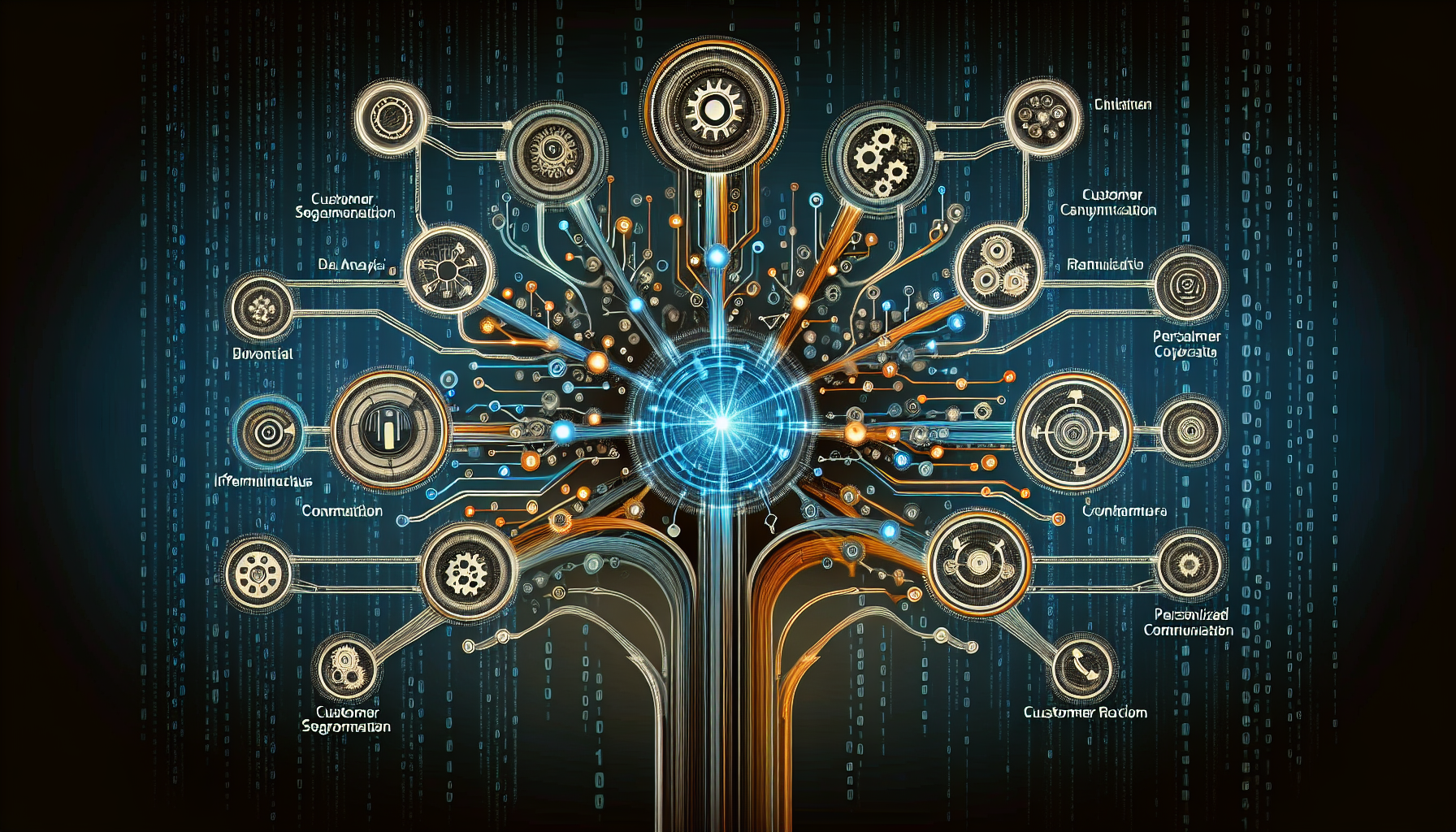
## How Machine Learning is Transforming Customer Relationship Management: 7 Key Changes
Customer relationship management (CRM) systems are vital for contemporary businesses to oversee and scrutinize client interactions throughout the customer lifecycle. The advent of machine learning (ML) has added a layer of sophistication to CRM systems. ML algorithms can process extensive datasets, discover patterns, and generate actionable insights, enabling businesses to forecast consumer behavior, customize interactions, and automate repetitive tasks. Here are seven significant ways ML is transforming CRM.
### Refined Customer Segmentation
#### Precise Market Classification
Machine learning aids businesses in categorizing their market into specific segments by examining purchase histories and behavior patterns. This advanced method surpasses traditional segmentation techniques, ensuring each group reflects authentic similarities and preferences.
#### Tailored Marketing Campaigns
With accurate segmentation, businesses can craft highly targeted marketing campaigns that cater to each segment’s distinct needs and interests. This results in higher conversion rates and more effective marketing strategies, promoting scalability and efficient management of large customer datasets.
### Superior Customer Support
#### Round-the-Clock AI-Powered Help
Integrating machine learning into chatbots and virtual assistants revolutionizes customer service by offering 24/7 support. [AI-driven chatbots](https://lonelybrand.com/blog/wireless-earbuds-extended-battery-life/) can address various client inquiries, deliver instant responses, and swiftly resolve issues, ensuring consistent and precise information delivery.
#### Ongoing Learning and Enhancement
Utilizing ML enables chatbots to continuously learn from each interaction, improving their capability to assist with more complex queries over time. This leads to quicker response times, greater efficiency, and enhanced customer satisfaction.
### Deeper Customer Insights
#### Detection of Patterns and Trends
Machine learning algorithms analyze customer data to recognize patterns and trends. This helps predict consumer preferences and behaviors, allowing businesses to personalize marketing strategies for each customer.
#### Enhanced Data Accuracy
Poor-quality data can cause substantial revenue losses. ML helps businesses improve the accuracy and relevance of their CRM data, leading to more personalized and effective marketing strategies that resonate with customers.
### Predictive Analytics for Consumer Behavior
#### Precise Forecasting
Employing machine learning for future customer behavior forecasting allows businesses to accurately predict churn rates and purchasing patterns. Early detection of potential churn enables sales teams to identify dissatisfied clients and intervene before they leave.
#### Proactive Retention Initiatives
This proactive approach helps implement retention strategies tailored to individual customers’ needs, increasing the likelihood of retaining them. These targeted efforts enhance client satisfaction, sales performance, and business growth.
### Sentiment Analysis
#### Understanding Customer Sentiment
Machine learning techniques can assess customer sentiment by analyzing feedback from various sources. Given that a large portion of digital data is unstructured, ML is particularly effective at understanding client opinions through social media posts, review platforms, and other unstructured data.
#### Data-Driven Enhancements
Using these insights provides a clearer picture of customer opinions about products and services. This deeper understanding allows businesses to make informed improvements, boosting consumer satisfaction and loyalty.
### Automation of Mundane Tasks
#### Boosting Efficiency
Automating routine CRM tasks with machine learning can enhance efficiency and lessen the manual workload. For example, automating customer interactions can result in considerable cost savings.
#### Streamlined Processes
Leveraging ML for client follow-ups and responses ensures timely and consistent communication without constant human input. This streamlines operations, allowing teams to focus on more complex tasks, enhancing productivity, and reducing costs.
### Sales Forecasting
#### Precise Sales Predictions
Using machine learning for accurate sales forecasting enables businesses to predict quarterly sales based on historical data. This capability helps anticipate demand more precisely, improving inventory management and financial planning.
#### Strategic Decision-Making
Understanding future sales trends ensures that businesses have the right products in stock and allocate resources effectively. Accurate sales forecasting helps identify potential market opportunities and mitigate risks, providing a competitive edge in the market.
## Conclusion
The continuous advancement of machine learning technologies provides increasingly powerful tools for optimizing CRM strategies. By adopting ML, businesses can stay ahead of the curve, enhance customer interactions, and drive significant growth. Embracing these advancements revolutionizes the management of customer relationships, leading to increased satisfaction, retention, and overall success.
## Q&A Session
**Q1: How does machine learning refine customer segmentation?**
**A1:** Machine learning refines customer segmentation by analyzing purchase histories and behavior patterns to categorize the market into specific groups. This precise segmentation ensures that marketing campaigns are highly targeted and effective.
**Q2: What advantages do AI-powered chatbots offer in customer support?**
**A2:** AI-powered chatbots provide 24/7 customer support, effectively handle various queries, reduce wait times, ensure consistent information delivery, and continuously learn from interactions to improve efficiency and customer satisfaction over time.
**Q3: How does machine learning improve CRM data quality?**
**A3:** Machine learning improves data quality by accurately analyzing and processing large volumes of customer data, identifying patterns and trends that traditional methods might miss. This results in more relevant and personalized marketing strategies.
**Q4: What is the role of predictive analytics in CRM?**
**A4:** Predictive analytics leverages machine learning to forecast future customer actions such as churn rates and purchasing patterns. This enables businesses to implement proactive retention strategies tailored to individual needs, enhancing client satisfaction and business growth.
**Q5: How does sentiment analysis benefit businesses?**
**A5:** Sentiment analysis using machine learning helps businesses understand customer opinions by analyzing feedback from various sources. This insight allows companies to make informed improvements to products and services, increasing customer satisfaction and loyalty.
**Q6: What are the benefits of automating routine CRM tasks with machine learning?**
**A6:** Automating routine CRM tasks with machine learning increases efficiency by reducing manual workload, ensuring timely communication with clients, streamlining processes, enhancing productivity, and reducing costs.
**Q7: How does machine learning enhance sales forecasting?**
**A7:** Machine learning enhances sales forecasting by analyzing historical data to predict future sales trends accurately. This helps businesses manage inventory better, allocate resources efficiently, identify market opportunities, and mitigate risks for informed decision-making.
